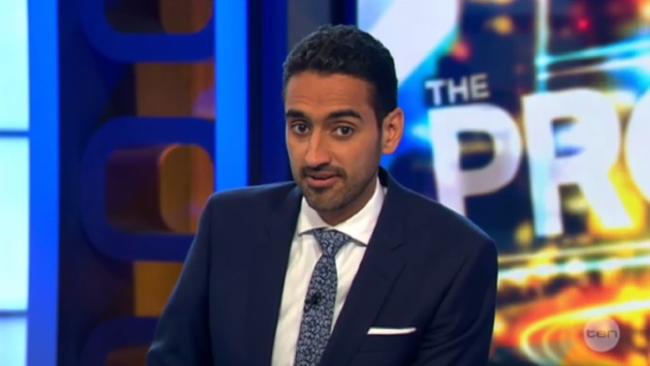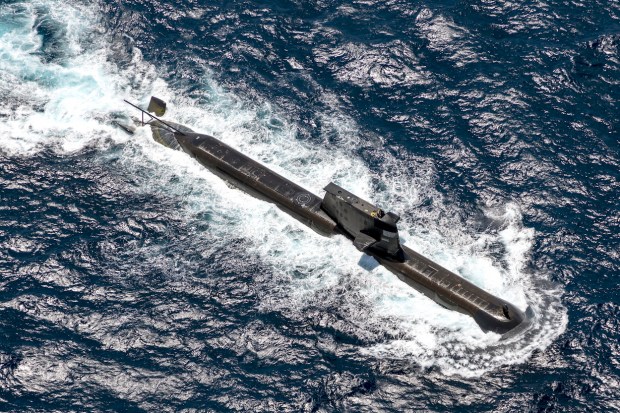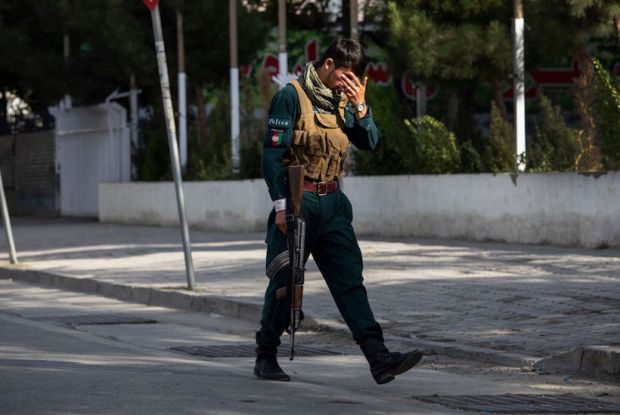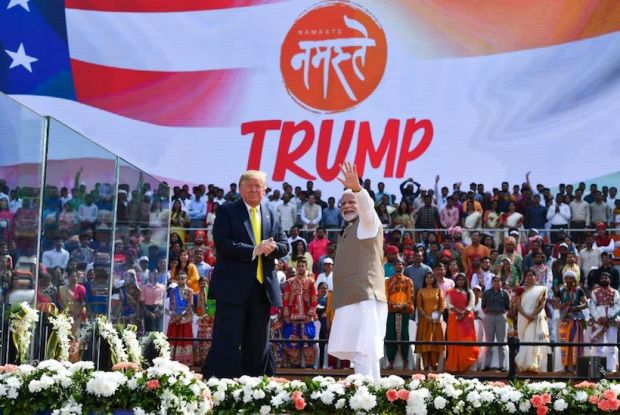I miss the regular nailing. No, this is not a line I just saw on a Tinder profile. It’s an acknowledgement that my life is so much poorer for not being exposed to a regular dose of Waleed Aly’s very conventional wisdom. There once was a time, not that long ago, when Buzzf…, sorry, I mean News.com.au would produce a major story every few days how everyone’s favourite Gold Logie winner and “The Project” host “demolished” this or “nailed” that and generally “made Australia stop and listen”. Alas, not anymore. Who’s going to tell me now what I should think in order to be able to consider myself a part of trendy cosmopolitan inner city elite?
To all those like me who have been wondering “Where’s Waleed?”, a big thanks to Gerard Henderson for pointing us towards Dr Aly’s recent opinion piece in The New York Times. The Grey Lady, as the newspaper is fondly known for its resemblance to a demented homeless shopping trolley lady who shrieks at passers-by about the end of the world, after all, thinks that Byron Bay is a Gold Coast town, claims credit for making the government compensate Manus Island asylum seekers (as opposed to the court which made the judgment in a long-running case), and informs its readers on Australia Day that this is the day when “white Australia celebrates genocide”. Who better to make the Yanks better informed about what’s really going on Down Under than Waleed Aly then?
Waleed’s contribution is titled “Immigration as a Security Threat”, and squarely aims the nail and the hammer at the Turnbull government for its decision to create the Home Affairs ministry:
Every now and then you get the impression that Australia is desperate to be under grave threat…
[The announcement] was a shocking yet predictable moment. Shocking because it seemed like a sudden escalation for Mr. Turnbull, who was once a critic of Mr. Abbott’s tendency to overhype the threat of terrorism. Predictable because in so much of the world the appearance of being tough on terrorism has become the most common political currency…
Australia began this century with a Department for Immigration and Multicultural Affairs. Back then, the department’s slogan was “Enriching Australia through Migration.” Just over a decade ago it dropped the multiculturalism portfolio entirely, creating instead a Department of Immigration and Citizenship. Now it’s to be rolled into a national security department. Thus, we can chart Australia’s public conception of migration from being a celebrated aspect of its multicultural character to a civic idea whose highest ultimate expression is citizenship to a threat to be managed…
When the story of the Turnbull government is written, he will have been the prime minister who finally debased immigration in the Australian political imagination.
It seems that Malcolm Turnbull will now go down in memory as the Prime Minister who broke Waleed Aly’s heart. Alas, I have to jump to Turnbull’s defence (it feels strange, but I’m OK, thanks for asking); it wasn’t Malcolm who debased immigration in the Australian political imagination, it was immigration itself. Or rather the Waleed Aly-style political class, commentariat and intelligencia who clamour for more or less open borders and Tim-Tams refugee program (an intake that never runs out), with all the problems that brings: an endless stream of boats, importing social problems, immigration without assimilation, and diversity as an end in itself.
John Howard (remember him?) knew that immigration had to be carefully managed and be – and be seen to be – in the national interest so as not to lose the generally tentative public support.
These days Australia takes in some 190,000 migrants and 13,000 refugees per year, with calls for yet more by the very same people who are otherwise so worried about the human impact on our fragile environment and our declining infrastructure and public services. But hey, we have to signal how tolerant and open we are; plus it’s easier to import your electorate rather than win over the existing one. Who cares about the bigoted plebs who think that at least some of it might be a tad problematic?
The guts of Waleed’s piece throw up all the familiar talking points against the Home Affairs department: it was a political decision, Turnbull is protecting himself from the right, no one outside the government has called for change, and there is no point in imitating the British model in any case (“Australia faces a different kind of terrorist threat [then Great Britain]. And Australian authorities already have a strong record of arresting terrorists and of disrupting locally planned plots.”).
I don’t have a dog in the Home Affairs fight, except once, a long time ago, in a galaxy far far away (towards “Howard’s End”; no, not the Merchant-Ivory movie), I worked for a while for a much younger though just as serious Peter Dutton, which I guess now gives me a licence to call him my Homie Affairs Minister.
Waleed argues that the national security needs not be more centralised because our Aussie jihadis are basically dumb (“No Australian terrorist attacks have been mass casualty incidents, not one has been the work of a sophisticated network, and all have used crude weaponry such as knives and guns rather than advanced bombs.”). But for a government, whose first duty is to protect its people, to think that would be a dangerous complacency. Mass casualty terrorism is not a problem until it is, by which time it’s too late; lots of people die and politicians are abused for not doing more to prevent such atrocities.
Dr Aly, who likes to downplay terrorist threats to Australia, is playing a risky game: he needs to get lucky 100 per cent of the time; the terrorists need to get lucky only 1 per cent of the time. And when something big (Allah forbid) happens, it’s not Waleed who will be affected or blamed.
For myself, I prefer to keep my mind open rather than telling “The New York Times” readers what they love to hear. To paraphrase the old saying, party as if Waleed is right, prepare as if Waleed is wrong.
For myself, I prefer to keep my mind open rather than telling “The New York Times” readers what they love to hear. To paraphrase the old saying, party as if Waleed is right, prepare as if Waleed is wrong.
Illustration: Channel 10.
Arthur Chrenkoff blogs at The Daily Chrenk where this piece also appears.
Got something to add? Join the discussion and comment below.
Got something to add? Join the discussion and comment below.
Get 10 issues for just $10
Subscribe to The Spectator Australia today for the next 10 magazine issues, plus full online access, for just $10.


























Comments
Don't miss out
Join the conversation with other Spectator Australia readers. Subscribe to leave a comment.
SUBSCRIBEAlready a subscriber? Log in